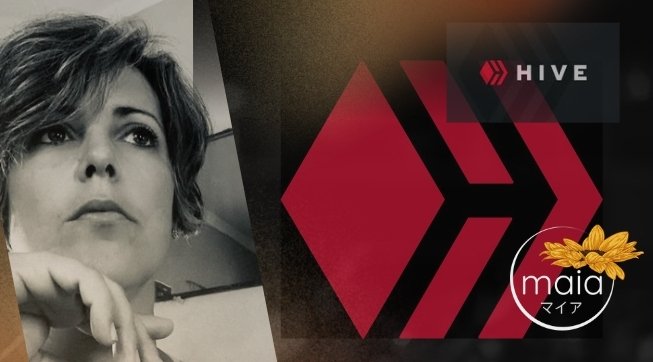
The measure of the human
Of the many poets who for me have a sacred space, Luis Rogelio Nogueras is the one who has the greatest weight. Reading him is having a dialogue with life. The thing is that, if something captures me about his work, it is that everyday, real, almost physical character with which he invites us to the poetic body.
Wichi, "the Red", is a champion of irreverence, who knew how to face tradition by turning the mechanism of the poetic universe in the opposite direction and taking a stance between insubordinate and authentic.

I have built this criterion by reading and rereading his work, collected a few years ago in the volume There are many ways to play, with an excellent prologue by Guillermo Rodríguez Rivera, and which is the object of my evaluations on this occasion.

Being one of my favorite books, I will not talk about it as someone who masters the technical artifices, I do not think I have a voice to match, but I venture to leave you my considerations as a common, although avid, reader.
Approaching these pages implies a predisposition to direct play in which Wichi uses the poem as a weapon of provocation, moving us to his polysemic (polyphonic) reality, which he himself orchestrates and portrays, without superfluous decorations to humanity from what is intrinsically human.



With Nogueras, poetry comes into the world with the sharp cry of the ironic, it takes firm steps between the humorous and the colloquial, correspondingly, the lyrical subject crosses bridges according to his experience and is seen reflected in the verse.


There are many ways of playing with the nakedness of everyday events that this poet has, many ways of contrasting the matter that transcends and the one that has less meaning. With humor, nuanced with the anecdotal, he generates the parody of the drama after the daily routine, mocks reality and dominates it as he pleases. Does this perhaps give it a deeper, closer dimension?

Within several notebooks, compiled by Neyda Izquierdo Ramos, the highlights are Carrot Head, *Imitation of Life, Nothing from the Other World, Love the Wild Swan, or the one that gives the title to this collection. In the latter, twelve texts stand out, with erotic content, which collect not only the raw poetic image revealing sexual elements, but are also illustrated by the author in a tone to satirize, from the simple truth, one's own existence in every possible aspect. Perhaps (this analogy seems to me) he was looking for a larger quote from that notebook by Baudalaire, with illustrations by Gustav Kilmt, Forbidden Poems of the Flowers of Evil, whose eroticism is open and stark.
Nogueras himself warns in his introductory note that, to read these, an unprejudiced and impudent vision of love and sex is needed.

The themes addressed do not leave the impression of the laughable that lightens the phenomena, demystifies them and brings them closer to the earth, where the roots. Love, heartbreak, sadness, anguish, poetic art, taboos, each one becomes a central axis with colloquial nomenclature, close to any subject, simplified with a vulgar tone to also criticize the false perspective of the creative fact with which the preceding poetry was assumed. This could also be understood through the prism of "anti-poetry" that participates in addressing feelings, the mundane, passionate things that lie beneath our epidermis.





I always speak with enthusiasm about this book, about Wichi, about his style without half measures because in doing so I feel that I bear witness to a poetry that does not need the elite of language to convince but is built based on unexpected turns or unconventional forms. Conversing with Wichi is immersing yourself in the exchange with another kind of original beauty, that which exposes the human heart of things.



With this book, Letras Cubanas Editorial certainly invites us to return to the spaces of being with the plainest impression of poetry.

Friends of #HiveBookClub, I recommend reading There are many ways to play, it will be an adventure from thirst, that's what I believe, that's how I experience it every time I return to its pages.
Until another chance.
I leave you hugs of light

Content translated with Google Banner made by me in Canva


La medida de lo humano
De los muchos poetas que para mí tienen un espacio sagrado, es Luis Rogelio Nogueras el que tiene mayor peso. Leerle es dialogar con la vida. Es que, si algo me atrapa de su obra, es ese carácter cotidiano, real, casi físico con el que nos convida al cuerpo poético.
Wichi, "el Rojo", es paladín de irreverencia, que supo encarar a la tradición girando el mecanismo del universo poético en sentido contrario y tomando una postura entre insubordinada y auténtica.

Este criterio lo he construido a fuerza de leer y releer su obra, recogida hace algunos años en el volumen Hay muchos modos de jugar , con excelente prólogo de Guillermo Rodríguez Rivera, y que es objeto de mis valoraciones en esta oportunidad.

Siendo uno de mis libros de cabecera, no hablaré de él como quien domina los artificios técnicos, no creo tener una voz a la altura, sino que me aventuro a dejarles mis consideraciones de lectora común, aunque ávida.
Acercarse a estas páginas implica una predisposición al juego directo en el que Wichi utiliza al poema como arma de provocación, moviéndonos a su realidad polisémica (polifónica), que él mismo orquesta y que retrata, sin ornatos superfluos, a la humanidad desde lo intrínsecamente humano.



Con Nogueras la poesía viene al mundo con el grito agudo de lo irónico, da pasos firmes entre lo humorístico y lo coloquial, en correspondencia, el sujeto lírico cruza puentes según su experiencia y se advierte reflejado en el verso.


Muchos son los modos de jugar a la desnudez del suceso cotidiano que tiene este poeta, muchas las maneras de contrastar el asunto que trasciende y el que posee menos significado. Con humor, matizado con lo anecdótico, genera la parodia del drama tras la rutina cotidiana, se mofa de la realidad y la domina a su antojo. ¿ Acaso ello le otorga una dimensión más profunda, más cercana?

Dentro de varios cuadernos, compilados por Neyda Izquierdo Ramos, destacan Cabeza de Zanahoria, Imitación de la Vida, Nada del otro mundo, Ama al cisne salvaje, o el que da título a esta colección. En este último destacan doce textos, de contenido erótico, que recogen no solo la imagen poética cruda reveladora de elementos sexuales, sino que están ilustrados por el autor a tono de satirizar, desde la verdad simple, la propia existencia en cada aspecto posible. Quizás (se me antoja está analogía) estaba procurando una cita mayor de aquel cuaderno de Baudalaire, con ilustraciones de Gustav Kilmt, Poemas prohibidos de las flores del mal, cuyo erotismo es abierto y descarnado. El mismo Nogueras, advierte en su nota introductoria que, para leer estos, se necesita de una visión desprejuiciada e impúdica sobre el amor y el sexo.

Las temáticas abordadas no abandonan la impresión de lo risible que aligera los fenómenos, los desmitifica y los acerca a la tierra, donde las raíces. El amor, el desamor, la tristeza, la angustia, el arte poética, lo tabúes, cada uno viene a ser eje central con nomenclatura coloquialista, cercanos a cualquier sujeto, simplificados con tono soez para criticar también la falsa perspectiva del hecho creativo con la que se asumió la poesía antecedente. Esto también pudiera entenderse a través del prisma de la "antipoesía" que participa del abordaje de los sentimientos, de lo mundano, pasional que yace bajo nuestra epidermis.
Hablo siempre con entusiasmo de este libro, de Wichi, de su estilo sin medias tintas porque al hacerlo siento que doy testimonio de una poesía que no necesita de la elite del lenguaje para convencer sino que se construye a base de giros inesperados o formas poco convencionales. Conversar con Wichi es sumergirse en el intercambio con otra clase de belleza original, ésa que expone el corazón humano de las cosas.



Con este libro la Editorial Letras Cubanas ciertamente nos invita a retornar a los espacios del ser con la impresión más llana de la poesía.

Amigos de #HiveBookClub, les recomiendo la lectura de Hay muchos modos de jugar, será una aventura desde la sed, así lo creo , así lo vivo cada vez que regreso a sus páginas.
Hasta otra oportunidad.
Les dejo abrazos de luz

Contenido traducido con Google Translator.Banners creados por mi y editados en Canva*
I invite you to visit the project DRIP - WITNESS NODE - BPUD

Support the witness and vote for TheBbhProject! Project carried out by @bradleyarrow


















